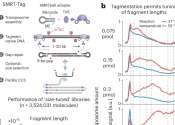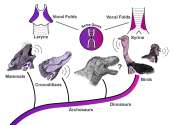Scientists push single-molecule DNA sequencing to the next level
In recent years, technologies that allow scientists to study a person's DNA at single-molecule resolution have vastly expanded our knowledge of the human genome, the microbiome, and the genetic basis of disease. With such ...









